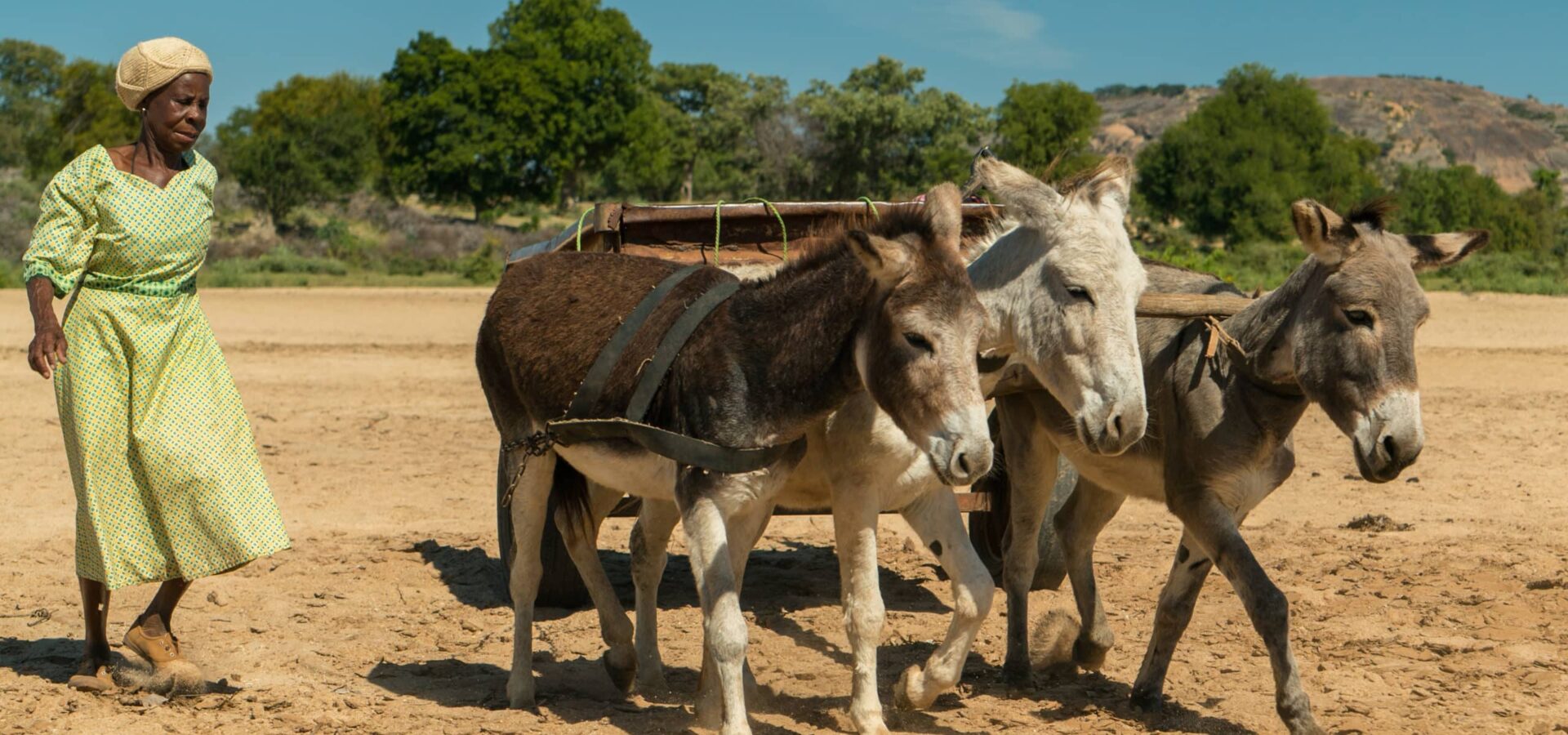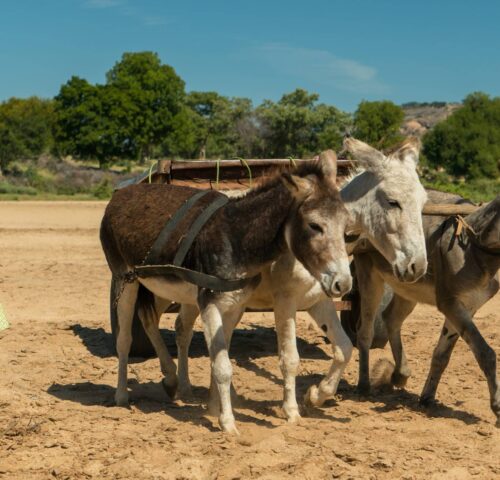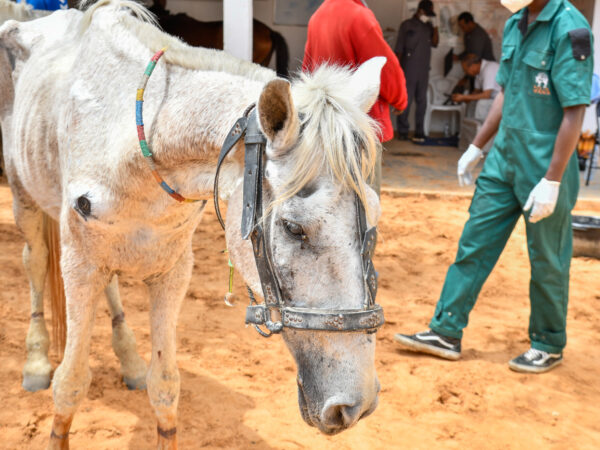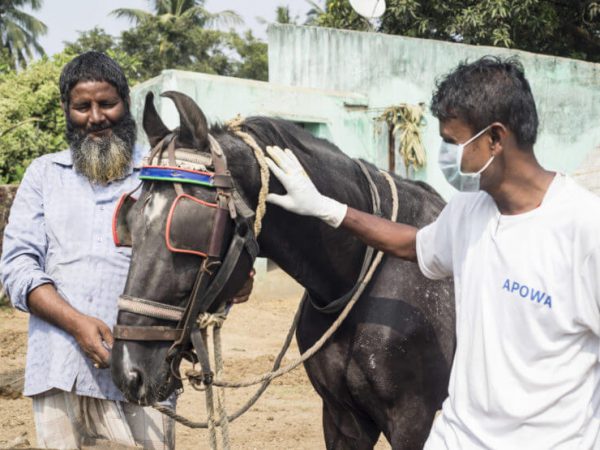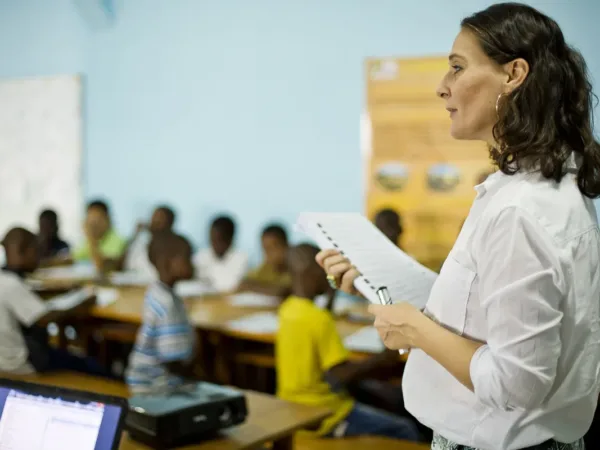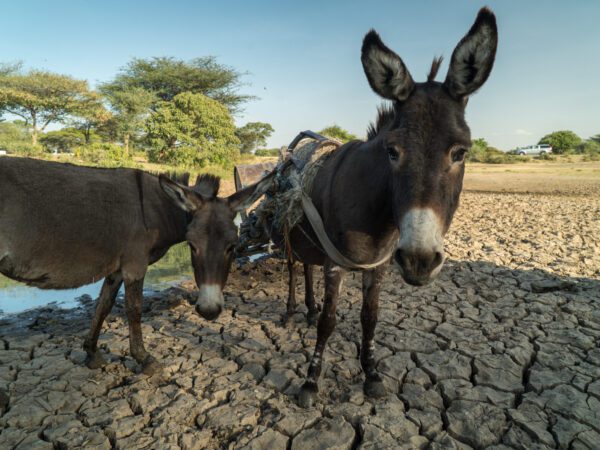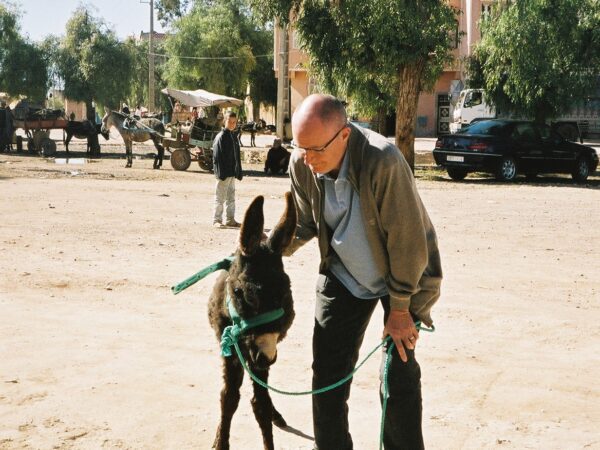In a country brought to its knees by political and economic problems, SPANA is a lifeline for animals in Zimbabwe and their owners. In addition to providing important veterinary care to working animals in urban and rural areas across the country, we educate children and teachers in Zimbabwe through a partnership with the local Ministry of Primary and Secondary Education.
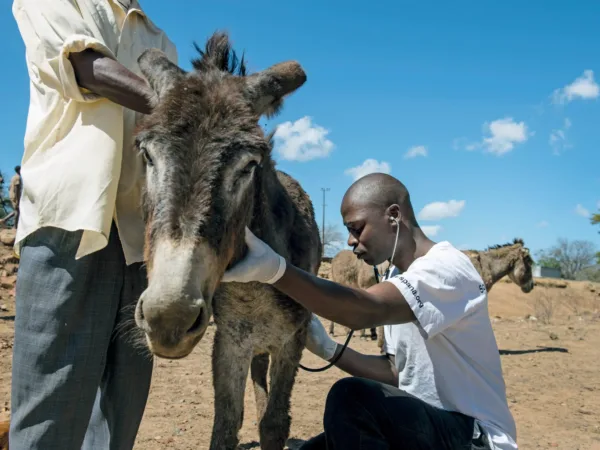
Zimbabwe at a glance
- Population: 16.32 million
- Area: 390,757 square km
- Location: Southern Africa
- Capital city: Harare
- Number of working animals treated in 2024: 85,821
Our work in Zimbabwe
Our veterinary team in Zimbabwe provides vital treatment to working donkeys throughout the country, travelling thousands of miles every year in our six mobile clinics to reach small towns, villages and rural communities. Access to free veterinary care is essential in these areas, where around three-quarters of people live in poverty. Common problems treated by the team include harness wounds, hoof problems, eye conditions and parasites.
We also provide community and one-to-one training for working animal owners in how to better look after their animals. In addition, SPANA trains veterinary professionals across Zimbabwe. We operate a clinical skills centre, improving the technical and practical skills of hundreds of veterinary students at university each year.
Our animal welfare education programme is helping children throughout Zimbabwe to develop their knowledge of animals and their basic needs. Through an agreement with the Ministry of Primary and Secondary Education, we run and support PAWS (Promoting Animal Welfare in Schools) clubs in primary schools throughout Zimbabwe, and train teachers in Humane Education and Animal Welfare.
We are also working to stop the trade in donkey skins for use in traditional medicine. In 2018, we joined forces with a number of other local groups to successfully lobby the government to prevent a major new donkey abattoir from opening in Zimbabwe. We also help run workshops with local police forces and regulators to ensure that laws and regulations are effectively imposed.

Q&A with Dr Keith Dutlow, SPANA Zimbabwe Country Director
What roles are working animals used for in Zimbabwe?
Working animals are used for ploughing fields for small-scale subsistence agriculture, pulling carts as a taxi service, and transporting materials ranging from goods and merchandise to water, firewood and food for individual families.
What is the main welfare issue faced by working animals in Zimbabwe?
The main issue is overwork. This is not because of negligence or cruelty, but simply because families need their animals for vital work on a daily basis. We are educating owners that their animal’s life will be better, and they will work better, if they are adequately rested, fed and watered and that good, appropriate equipment is used.
Why is SPANA’s work so important in Zimbabwe?
There is no other animal welfare organisation in Zimbabwe that is focusing primarily on donkeys and providing free veterinary treatment, training veterinary students and technicians, training owners in aspects of animal welfare and productivity, and teaching schoolchildren animal welfare.
What plans does SPANA have in Zimbabwe for 2024?
We plan to start developing our work in Tsholotsho district during 2024 by increasing our veterinary, community training and education activities in the area. The area has one of the densest donkey populations in the country, so there is a clear need for SPANA’s help.
Is there anything you would like to say to SPANA supporters?
Thank you for your unwavering enthusiasm and support! We continue to face new challenges, like climate change, in some of the lowest income communities in the world. If those people lost their donkeys, they would have to do the work that donkeys do – and other activities like going to school would be lost. I am incredibly proud of what we do. SPANA’s work is not flashy or glamorous, but it is extremely important and makes a huge difference to the lives of donkeys and their owners.

